In this episode: Janet is joined by trauma recovery expert Elisabeth Corey to answer a parent’s email about her struggles to become a respectful parent. This mom says certain behaviors of her 2.5-year old daughter set her off. “I don’t stay calm, focused, kind to my child.” And she believes her own upbringing (“in no way respectful”) is the root cause of her reactions. She is overwhelmed by the responsibility of raising her child and wants to know: “What can I do to help myself?” Janet and Elisabeth consider the common underlying issues of our own childhoods and how we can recognize and heal negative cycles to become better parents.
Transcript of “Losing It – Understanding What Makes Us Snap (With Elisabeth Corey)”
Hi, this is Janet Lansbury. Welcome to Unruffled. Today I have the great pleasure of introducing you to one of the most inspiring people I’ve ever come across, Elisabeth Corey. Now, if you’re not already aware of Elisabeth’s extraordinary work, she’s a survivor of severe childhood trauma who shares her healing journey with others as a life coach for survivors of trauma and abuse. All of this is on her website, beatingtrauma.com.
Elisabeth is also the mother of twins, and she’s acutely aware of the challenges that parents with less than ideal childhood experiences face. One doesn’t need to have experienced abuse to benefit from Elisabeth’s insights. They resonate deeply with me. They can help any parent recognize their triggers and break negative cycles and patterns of behavior that may have been passed down to them.
That is why I immediately thought of Elisabeth when I received a note from a parent who is struggling to be the confident leader she aims to be. She knows what to do but, time and again, in the moment with her toddler behaving in challenging ways, she snaps and she behaves in a manner that she regrets. She can’t seem to break this cycle of reactivity and regret.
Hi, Elisabeth.
Elisabeth Corey: Hi, Janet. Thank you so much for having me on.
Janet Lansbury: Elisabeth has written some wonderful guest posts for my website that have always, always been some of the most popular and she’s just a gift to the universe, so I can’t say enough good things about you.
Elisabeth Corey: Thank you so much.
Janet Lansbury: So here’s a note I wanted to share with Elisabeth and try to get her thoughts.
Dear Janet,
Greetings from Prague, Czech Republic. I discovered your podcast half a year ago and have your books too. They’re a great help. Thank you very much. I have a question about myself. I was raised in a way that was in no way respectful and now I very often feel overwhelmed by the responsibility of raising my daughter, two and a half years old. The fact that children model our behavior is really scary for me. I’m listening to your podcast and it all makes sense and I totally know how to behave at the moment of listening, then the real situations come in and I just don’t manage.
Unfortunately, I’m not a confident leader. I don’t stay calm, focused, kind to my child, especially when I’m tired. Certain behaviors of my daughter send me through the roof. I get very nervous and then I snap and I do all the wrong things that a good parent should not. I realize afterwards when I calmed down and I regret it, but then it happens again. I’m educating myself since the birth of my daughter, but my progress is very slow and she grows up so fast. So the question is: how to become a better parent faster? What can I do to help myself?
So what do you think, Elisabeth? Do you have any thoughts for this parent? Does this bring up anything for you?
Elisabeth Corey: I do have thoughts for this parent, and the first thing I want to say is that she is not alone at all in this particular issue she’s having. This is something I hear every day from parents just like her who have been through horrific, or even moderately difficult childhoods or childhood they don’t remember it all, and they’re trying desperately to raise their children in a way that is different from the experiences they had, and they’re not succeeding. Or maybe they’re succeeding in some ways, but it’s just not enough. Because let’s face it, Janet, we are so hard on ourselves as parents.
Janet Lansbury: Yes. And what that does is it actually creates more stress for us. So we’re already reacting out of being stressed out and then we beat ourselves up and we create even more stress that way.
Elisabeth Corey: Exactly. It does not help us be a better parent to be constantly criticizing ourselves about how we have not been a good parent. It never works.
So I wanted to start by saying that it’s really important that people know they are not alone. Because honestly, when we have been through difficult childhoods, we have a tendency to isolate ourselves, because that was often what was done to us. So we will come up with stories on her heads about how we’re the only people who have experienced this issue or the only people struggling. Everybody else gets this.
So I like to begin by breaking that pattern of thinking because it isn’t true. There are so many of us who are struggling, especially with parenting young children after we’ve experienced some kind of trauma in childhood. I always like to start there.
Janet Lansbury: That’s brilliant and I can attest to that. I receive notes like this all the time and I have had my own version of this myself when I was a new parent, especially. So yes, we’re not alone.
Elisabeth Corey: No. So a lot of us think of trauma as something that is a newsworthy event, and trauma really isn’t like that. Trauma is actually the response that a person is having to an event. So something can be traumatic for one person and not for another, or more importantly, something can be traumatic for a child that an adult thinks is just a normal, everyday experience. So we have to look at the fact that when we talk about trauma, it’s not all really, really awful stuff that is clearly trauma and belongs in newspapers. Sometimes it’s things that we just couldn’t process very well. And when we can’t process something in childhood, that immediately begins to create difficulties for us in the way that we process the rest of the world. Our nervous system begins to get a bit worked up. We start to have experiences in the brain and in the body that indicate that we’re in a state of hyper alert, right?
If it happens enough, we don’t leave that state. We live there. And when we live there and we have children we will begin to see problems in the relationship between ourselves and the child. We often project our relationship with our abusive caregivers onto our children because, let’s face it, there are similarities between young children and people who don’t respect our boundaries when we are growing up. They’re actually not that different. The difference is that children are allowed to be that way, and obviously adults are not, right?
So we have this hyper vigilance. It’s really intense. And we are carrying a ton of fear, and we’re too scared to set boundaries. And we’re hovering over our children to protect them even from themselves and their own emotions. With all this fear in the system we are going to try to maintain some kind of control over the situation and that often turns into angry responses to our children.
I want to be clear that this all happens in an instant. We aren’t aware that this is all going on. We don’t know: Okay, first I get hyper vigilant, then I get scared, then I get angry. It happens so fast that we don’t even see the escalation until this too late. That’s the out of body experience that happens when all of a sudden we’re angry and we’re watching ourselves and we’re like: What am I doing right now? I don’t want to be doing this, and yet I can’t stop it. Right?
So that is my evaluation of what is actually happening, and I have a lot of people who I work with who are working through this escalation and finding ways to break the pattern before it starts. It’s very difficult, but it can be done.
Janet Lansbury: I have the sense also in my own experience and my experience with parents that oftentimes it can be pretty specific things that we were shamed for as children, or isolated for: Go away, I don’t want to see that. Or rejected for, or in some ways emotionally abandoned for. Those tend to be specific triggers for us. So that when our child behaves in those ways, then we can get triggered back into our own shame and fear around those situations, around those exact experiences or similar experiences.
Elisabeth Corey: As a matter of fact, this is how generational trauma works. When we have been shamed for something we will then project that shame onto children in very similar ways to what happened to us. Some of the most common examples, unfortunately, because this is such a difficult area for us as human beings, happens around emotions. Let’s say you had a lot of anger and you were willing to express it and you’re willing to stay exactly how you felt, and you were shamed for that expression… You are going to be much more likely in adulthood to shame your child for angry expression because you have internalized that shame and now it’s coming out at the child. That is very common.
It can also be things that you might not see normally as negative, even by society’s standards. You can have certain strengths that run in a family, but if those strengths have been sort of pushed away and shoved down and taught to be shameful in some way over time you will suppress those in your children as well, because they were suppressed in you. So it isn’t always something that society would say, “Well, that’s a really bad thing.” Things like singing. Almost anything if your child is really strong at, but you were told that you weren’t good at it. You might be like, “Oh, don’t do that. You don’t have what it takes to do that. Let’s move on. We’ll do something else.” So yes, it comes out in so many ways and they are really specific.
Janet Lansbury: And as you said early on, we often don’t even remember having those experiences. I think especially for a lot of women around anger… So maybe we expressed anger at one or two years old or even younger and we saw that, Whoa, that’s not okay with my parents, and we don’t even remember expressing anger in our whole life. So it can come as a surprise when something that we never even recognized in ourself or remember springs up in our child, and we react to it and we don’t even know the context for it. We can’t even figure that out.
Elisabeth Corey: Exactly. I work a lot with people who have different levels of memory repression as a part of their own experiences. Some of those are because we’re just really young, but some of those are because we needed to put away those memories, because we couldn’t process them. So they needed to no longer live in our conscious mind. I work with that a lot.
I will say that a lot of times what I hear is: “Oh, I was never allowed to get angry. I never expressed any anger. Not even one time was I angry, I was such a conformist.” Then we begin to kind of look under the surface and realize, “No, you tried. You did.” Because we all try. Children are naturally expressive.
So yes, you’re very right that many times what we are triggered about is not something we’re holding in our conscious mind on a daily basis. We don’t even know that it’s a thing under the surface for us.
Janet Lansbury: So what would be the first step that you would recommend, or the first steps, to someone like this parent who notices that this happens when she’s tired, especially? Well, that makes sense because she’s even more depleted then and her arousal states are going to sort of take over at that point probably. But how can we start? How could we get there?
Elisabeth Corey: What I normally like to talk about here is that if we want to connect to our children differently, we need to reconnect to ourselves. So a lot of the work that I do is about beginning to build an inner conversation with self. And for some of us with trauma, self has been erased for the most part. We’re not even aware of who we are, let alone what our purpose is and what will fill us or make us happy. That’s out of the question. We haven’t even begun to consider that.
So the idea of having an inner conversation can feel nebulous, but it can also feel scary, and sometimes that’s for good reason because we have put away some things that we put away for a reason. And the idea of looking at them again doesn’t sound really awesome, but it’s so important for healing to do it.
So I encourage what I call “emotional journaling” as a way of reconnecting ourselves with what’s happening in the unconscious that’s driving this escalation in us, driving those triggers. The way emotional journaling works is instead of writing about an emotion, “I am angry.” We actually write from the emotion. So what is the emotion actually saying?
Now, it’s hard to do because our defenses try to stop us from doing that. Why? Because we have already been proven that this is dangerous. We learned in childhood we were not allowed to express this emotion, so why would we write from it now? Right? So it’s a process to get ourselves there. But as we begin to explore writing from the anger, specifically the anger that’s coming out at our children in these moments where we have escalated, over time we release that from the system and we get to what’s underneath that anger.
Anger is almost always a defensive emotion for us. And what I mean by that is there’s something beneath it. Could be grief, could be fear, could be shame, but there’s something there that we can only get in touch with once we have allowed the anger to express itself.
Now, one of the most common objections I hear to this is, “Okay, Elisabeth, that sounds great, but it’s not like I can just wave my 2-year-old in the kitchen while I run off to write in my journal.” And believe me, nobody gets that more than me, because I had two 2-year-olds and a really angry inner self at the same time.
I can tell you that one of the biggest things that we can learn through emotional journaling is how to recall that anger after the moment. Anger is actually something that’s fairly easy to recall, believe it or not. I’m not saying it won’t take any practice, but if you have a child that goes to bed at night and you can sit down and go, I was really angry earlier and I’m going to sit with that right now, I’m going to sit with that feeling and I’m going to see if I can let that express… Many times you can do it. It’s not going to be perfect. It won’t work every time. But by beginning this inner conversation with yourself you will begin to release some of these patterns, and even more important, build awareness around why it’s happening in the first place, which is a huge part of what we’re trying to understand. That will build compassion for yourself. And let’s face it, a lot of us don’t have much of that, but we can build that compassion for self because we can finally understand why we’re so angry and why we’re so scared. There’s a reason for it. And we don’t always know the full answer to that until we do this
Janet Lansbury: Right. It’s not our fault. It’s not some terrible flaw in us. It was a reaction to something else that we didn’t control and it’s okay. In fact, it could be kind of sad that those things happened to us and, yeah, being able to feel that compassion, like you said, and to care for ourselves in that way.
Elisabeth Corey: Right. Allowing sadness is one of the most important parts of this work. Allowing ourselves to grieve and not let the nonstop record of “It wasn’t that bad, you’re overreacting” doubt that. For a few minutes just letting ourselves feel the way we feel. It’s very powerful. And that is going to be reflected in your relationship with your children. It will be mirrored. The more that you respect yourself and your emotions, the more you have compassion for yourself and how you feel, the more you’re going to have that with your children.
Janet Lansbury: That’s this modeling this parent wants to do that she’s so afraid of, but she can turn that around and have it be the most incredible positive modeling.
Elisabeth Corey: Definitely.
Another thing I’ll say on that front that’s really important is, you know, I’m not a perfect parent. I’m still not a perfect parent. I’m never going to be a perfect parent. But the growth in myself from the time my kids were very, very young until now, and they’re 12 now, has been so big that even my children comment on it regularly. There is nothing better for us to model to our children than, “I used to get angry at you because I was triggered and now I have processed my anger and I express it in a grounded way.” You cannot model anything better for your children. So don’t think just because you didn’t start in the best spot that you are not teaching them amazing emotional expression skills by doing your own work on herself. Really, your kids will pick up on it and they will admire you for it. It’s something kids sort of naturally understand much more so than adults do.
Janet Lansbury: Yes, absolutely. I think we can also express our care for some of the effects of that on our children, and as you said before, more compassion for them because we understand that we were doing something that was involuntary at the time that affected them nonetheless.
Elisabeth Corey: And that’s so powerful. We can say to them, “Hey, I get how you feel that way, and I’m not going to respond defensively to that. You know, I get it. You’re struggling here because I expressed emotion in a way that just wasn’t right. I also don’t have to hold a lot of shame over that. But I can certainly apologize for it.” Right?
Janet Lansbury: Yeah. There’s so much grace in all of that. And it’s going to be hard to get there, I think, for anybody, even people that have more minor issues of this. It’s very hard to express how we may have let our children down when this is, for most of us, the most important job that we have.
Elisabeth Corey: Right. It is hard, but the key is if you’re trying to get to know yourself better and you’re trying to have compassion for yourself, you will naturally have a better opportunity to be a loving, compassionate, and in many cases apologetic parent.
Janet Lansbury: Yes. So to a parent like this one in the note, you would encourage the journaling and encourage the awareness, getting in touch with the emotion, being able to go there and write from there, and then what else? Is there more that you would advise this parent to do?
Elisabeth Corey: I think the more that this parent can work with this journaling and really bring an understanding to why they’re reacting the way they are, the more they’re going to be able to encourage their child to express emotion in a more expressive way. Building a grounding practice over time, even if it’s 30, 60, 90 seconds worth of grounding at any moment. And that will increase the ability to tolerate the toddler’s emotions, so that you can hold space for that child to feel how they feel. And the more they’re able to express, the less likely their emotional expression will be so intense to the point where it triggers the mother to the point where they can’t handle it anymore.
Janet Lansbury: Right? Or it gets locked into these behaviors, because the emotions need to be expressed and they’re not being expressed that the child keeps really having that healthy instinct to express them, but now it’s coming out through behavior that doesn’t even look like emotion anymore. It just looks like this mean behavior that children do to us. You know, this really uncooperative, awful stuff. But behind all of that is that same stress and emotion that the parent is reacting out of.
Elisabeth Corey: Sometimes it can be helpful if there’s been a block on emotional expression for a while to do some contained emotional expression, let’s stay some art projects or some hitting pillows or some screaming contest, which I’ve done with my children. She’s just going to get out some of that emotional energy that’s really stored in there. Allow them to be super expressive in these other ways I have found can be really helpful to bring a child’s nervous system back down to where those behaviors start to minimize a little bit.
Janet Lansbury: Yeah, and I think from the work that I do, just getting familiar with that situation where you’re allowing your child to have their feelings, and supporting them to, and soothing them with your presence and acceptance rather than trying to make the feelings disappear. The way that looks and feels takes practice.
I’ve spent a lot of time and energy in writing, trying to explain and illustrate an exchange between two people that is so crucial for children as they develop and, really, for all of us… To be able to just have our feelings and not have the other person’s discomfort take over. It takes a lot of practice to get comfortable and it’s never going to be really that comfortable, but it can become familiar, and you can start to make peace with it and realize how positive it is. But it’s going to feel very unfamiliar and scary to a parent who is just starting to think about these things and look at these things, and thinking, as this parent may be that: If I just know what to do, I’m just going to be able to do it, when she can’t until she does this other work, it sounds like.
Elisabeth Corey: Yes, and when I wrote that piece for you, that was really what I was getting at. These concepts are brilliant and so helpful for me in my own parenting journey, but there’s this gap between those of us with even some trauma in certain situations and what it would take to be in that place all the time. Of course, we’re not going to be there all the time, but there’s a gap. And it can be so frustrating when we’re like, Why can’t I get there? Why can’t I be that? I want to be that.
The reality is your system has been put into survival mode, and when it comes to emotions, that’s immediately where you go is into the survival mode and survival mode is a not parenting mode. That’s not how we parent. So that can be a real struggle, especially with people who have had complex trauma, to find their way back to this place.
Janet Lansbury: Yes, that makes sense.
Elisabeth Corey: There are so many different angles why this emotion became dangerous and we have to work through those and understand those and process them out, process the fear out of us.
Janet Lansbury: But hopefully just the beginning of this process, opening the door to that awareness and that sense of my own childhood, my own history as separate from my child’s can help us to get some clarity right away in terms of: Wait, this isn’t about my child doing this to me. This is my child’s separate experience and I’m taking it that way because of my own experience. Finding that separation. I think we can offer that parent the path to that right away, that this is something to work on about ourselves, and I think she knows that. She knows that this is about her and that it’s something she needs to work on and she just doesn’t know how.
Elisabeth Corey: Definitely, I mean, I definitely had that impression from her writing that she knows this is something she needs to work on which, honestly, is a part of the battle right there. This is my issue. This isn’t a problem with the child. This is my stuff that I need to process out. Then being able to really delve in and get serious about where this is coming from and why my system is responding this way, through writing in particular, will begin to make a person’s awareness of these situations just much, much stronger.
I find that people can write for fairly short periods of time, even 10 minutes every couple of days, and begin to have these epiphanies when they’re in situations of their child like, Oh, I see what’s happening here, pretty quickly in the process. But of course the more that you stick to it, the deeper it goes and, you know, the more long lasting experiences you can have.
Janet Lansbury: And the more it becomes a part of your body and a part of your story.
Well, this is really, really helpful. And Elisabeth is doing a virtual workshop about this very thing. It’s going to be July 20th at 11:00 AM eastern time, Parenting After Complex Trauma. You can find the details on her website, beatingtrauma.com. There’s also going to be a link in the transcript of this podcast straight to the page about the workshop, and this sounds wonderful. It’s very reasonably priced. I’ve got to say, you are so generous with yourself and your experience and your hope for parents.
She has many, many … how many articles have you written? I keep getting them in my inbox. I’m like, “I don’t know if I have time to read all these,” but I subscribe to Elisabeth’s website and she has the most wonderful articles, and she just keeps putting them out there, and wow, you’re just a giver.
Elisabeth Corey: Thank you so much. Yeah, I do write once a week. All those blogs are free and available to anybody who wants them, but thank you so much, Janet, for mentioning the workshop as well. I appreciate it.
Janet Lansbury: Oh, of course. And you know, as I said in the beginning of this, I am not a survivor of abuse, but I so relate to everything that Elisabeth writes about and talks about. I do think that probably almost all of us have some subtle experiences and behaviors that we were shamed for and things that we can wrestle with that are getting in our way.
I appreciate everything that Elisabeth is doing and her amazing mission that she has. She’s a very brave person. If you read her story, you will see.
So thank you so much, Elisabeth, and I hope we get to talk again.
Elisabeth Corey: Thank you so much. And of course I’d love to come back anytime to talk. This is probably my favorite topic, is how we can break the generational cycle and become the parents we want to be.
Janet Lansbury: Be well, my dear. Thank you.
Elisabeth Corey: Thank you, Janet.
Janet Lansbury: We’ll do this again, Elisabeth.
And thank you all for listening. We can do this.
For more, you won’t want to miss Elisabeth’s workshop: Parenting After Complex Trauma and the other resources she generously offers on her website: Beating Trauma – Spreading the Light of Advocacy and Awareness.
Also, here are links to the insightful guest articles Elisabeth has written for my website: Parenting and Triggers – Wounds of the Past and Confessions of a Recovering Helicopter Parent.

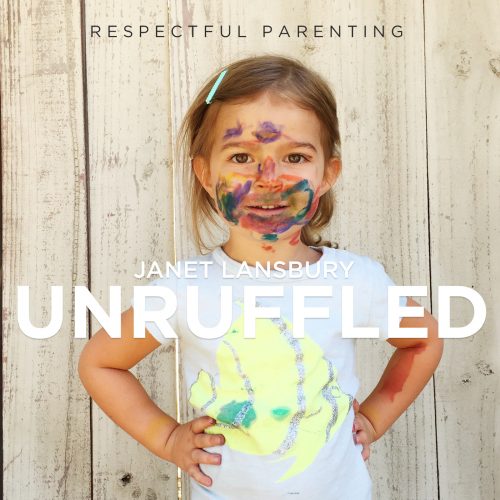


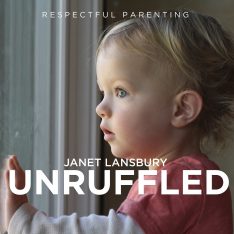

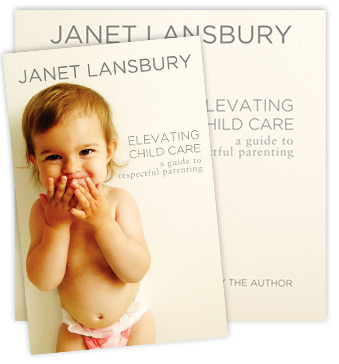

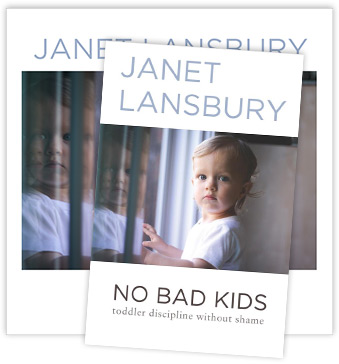
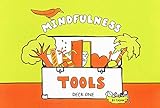

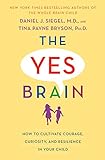
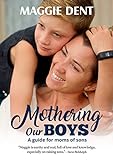
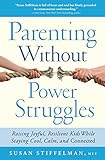

Great podcast! Very enlightening even for those of us who haven’t been through complex trauma. Life is complex anyway, and there’s always more to understand and get to know about ourselves that will help us be better parents.
Just one thing, where it says “screening contest”, should that have been “screaming contest”?
Thank you and YES you are right about the mistake which I have fixed. Transcription services are as imperfect as we all are, I guess. 🙂 Thanks for pointing out the typo!
I often do transcriptions myself and work with other people’s transcriptions, so I’ve learnt to read the sound, if that makes any sense…
Thank you so much Janet . This was truly needed. And I think we need to hear more to help that who have /had trauma . I am in the depths of this myself. How do I send in my question?
Thank you
It’s my pleasure to introduce you to Elisabeth’s work. As far as sending in questions, I would contact Elisabeth and attend one of her workshops. I can’t recommend her highly enough. I wish you joy in your journey!
Elisabeth Corey talks about emotional journaling, and writing from the emotion as opposed to about it – what is writing from an emotion?
Thanks for this podcast – I really identified with the mother writing, and it’s so reassuring to know I’m not the only one, plus hear the kindness of your responses.
Great topic today. It resonates so much to me. It made me realise that I am projected my own trauma towards my child. He is now acting out more than he is expressing. I’m wondering is there a way for me reverse this? I want him to be able to express his feelings in a more healthy way.
Great episode. What does it mean to journal “from” an emotion. Could we be given a few examples of this?
Thanks, Rebecca! All of those details are part of Elisabeth’s workshops. I highly recommend them.
Very useful topic, I face this struggle almost everyday and feel myself stuck in the vicious cycle of making it better.
This made me think about the things my parents said/did when I was a child in a different light. Helps me to give them some grace ❤️
I really appreciated this article! Curious if you have written anything on teaching kids healthy anger management or something addressing yelling? For me yelling is very triggering and sends me into fight or flight. I struggle with anger expression in general but yelling directed at me is particularly hard and I struggle to know with my little where to draw the line between healthy anger expression and where I should step in especially regarding tone and delivery of anger. Physical aggression is much more cut and dry.
I enjoyed reading and listening to this podcast I’m 61 this month I will be 62 and still learning and healing from child abuse, and hearing the yelling and seeing anger, and can see how we can try and improve this and learn how to still express ourselves without the raising of the voice and loudness of our anger, instead with a better way of comunicating what were feeling and how to change it to something more positive with the correct tone and venting of what were experiencing and feeling to get our message across without just making them feel the emotion of anger.